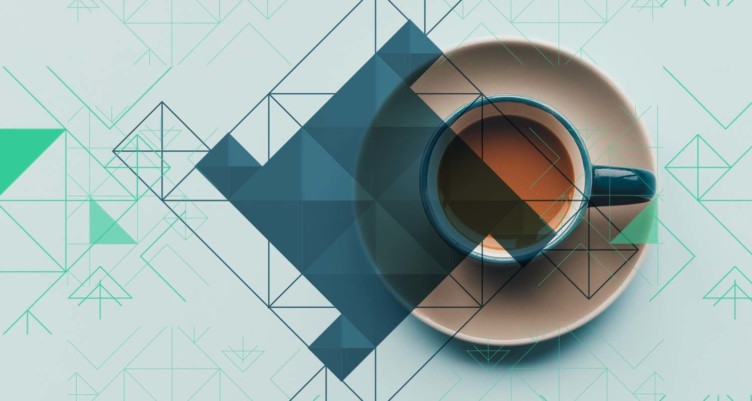New Algorithm Tells You How Much Coffee to Drink for Peak Alertness

Drinking the right amount of coffee is a delicate dance — too little and you’re still sleepy; too much and you’re wired. It turns out, figuring out the best dosage may boil down to mathematics. Scientists working for the US Army say they’ve developed an algorithm that tells you how much coffee to drink, and when.
Algorithm reveals how coffee consumption affects performance
Coffee is one of the safest and most effective ways to wake you up and help you power through your day. But how much you drink and at what time of the day makes a difference. In a study[1] published in June 2018 in the Journal of Sleep Research, Department of Defense researcher Jaques Reifman says the new algorithm uses a person’s sleep schedule to determine how much coffee they need for peak alertness.
“We found that by using our algorithm, which determines when and how much caffeine a subject should consume, we can improve alertness by up to 64 percent, while consuming the same total amount of caffeine,” says senior study author Jaques Reifman, director of the DoD Biotechnology High Performance Computing Software Applications Institute at the U.S. Army Medical Research and Materiel Command in Fort Detrick, Maryland.
“Alternatively, a subject can reduce caffeine consumption by up to 65 percent and still achieve equivalent improvements in alertness.” As part of the study, the researchers asked people to perform psychomotor vigilance tasks (PVT), which tested their reaction time when sleepy. They were also asked to input their sleep schedule and caffeine intake, since people metabolize caffeine differently. The algorithm then calculated the ideal coffee dosage for each person.
“Our algorithm is the first quantitative tool that provides automated, customized guidance for safe and effective caffeine dosing to maximize alertness at the most needed times during any sleep-loss condition,” says Reifman.
Test a similar version of the algorithm
The Army plans to license the new technology in the future. In the meantime, you can use a similar public version called 2B-Alert. However, it doesn’t make use of customized test performance results, so it isn’t entirely personalized. With 2B-Alert, you manually enter a sleep/wake schedule, as well as caffeine dosing and timing, and the tool predicts how you will fare on three different performance tests. The Army’s new algorithm is more accurate because the test results are not estimations and are based on how you actually did in the performance tests.
Ways to optimize your caffeine intake for peak performance
Until the new algorithm becomes available to the public, here’s how to optimize your caffeine intake to perform at your best:
Make sure to buy “clean beans”: Hands-down, the quality of your coffee beans matters. Certified clean coffee beans will give a mental edge and energy you need, while poorly sourced and improperly processed beans sap your energy and hinder your performance. That’s because of mold and other toxin contamination.
Bulletproof beans are sourced and processed in such a way as to minimize toxins.[2] Remember, while all coffee will give you a jolt initially, bad beans will cause you to crash later on due to their toxicity. You can avoid the highs and lows of coffee by making sure you purchase clean beans from the get-go.
Related: How to Make Bulletproof Coffee … And Make Your Morning Bulletproof
Consume coffee at the right time and in the right dose: Bulletproof recommends one 8-12 ounce cup of Bulletproof coffee in the morning. If you’re feeling sluggish later in the day, you can have one more cup of the same size.
Remember, daily brain fog isn’t normal — it’s a sign that your body may be inflamed. To combat brain fog, pay attention to your body before and after you drink your brew. Pinpoint when you need coffee and how much feels right to you. Keep a daily journal for the first two weeks to recognize any patterns that come up so you can address them.
Add healthy fats to your coffee: By adding grass-fed butter or ghee and Brain Octane Oil to your cup of joe, you’ll reduce the amount of coffee you need to stay awake because the healthy fats will give your brain a surge of energy, in addition to the caffeine’s effects. These fats are an excellent way to gain sustained energy from your coffee.
BONUS: Take a coffee nap: A lesser known tip — drink a cup of coffee then turn over the sheets and take a 20-minute nap. This is an exceptionally powerful way to boost energy and productivity because of what happens in your brain when you combine caffeine with sleep.
Caffeine passes into your small intestines after you drink it, and then it’s absorbed into your blood. It activates your brain chemistry by blocking receptors that are normally filled with a chemical compound called adenosine, which causes drowsiness. However, when caffeine binds to these receptors instead, you get that energy jolt and focus.[3] This process usually takes about 20 minutes, so if you lie down just after you drink coffee, you open up the adenosine receptors to the caffeine you just imbibed.[4] Try it out and see how energetic and alert you feel.
Related: Opposites DO Attract: Coffee Naps, The Bulletproof Power Nap, Explained
Sign up for early access to sales, product launches, the latest Bulletproof news and more!



